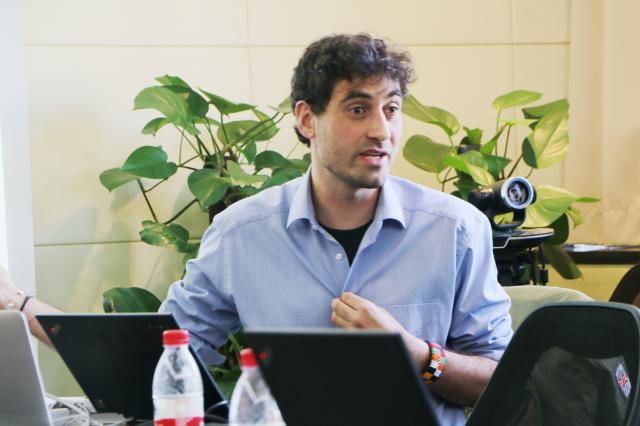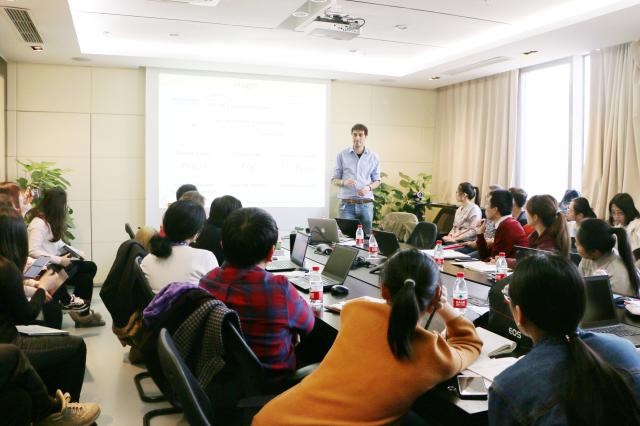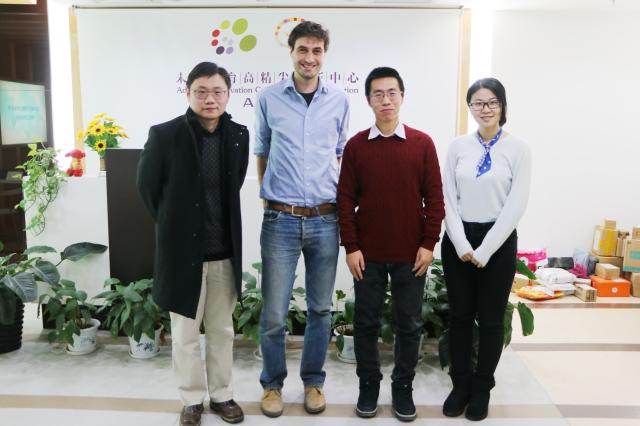
On the December 17, 2018, Doctor Chris Piech from Stanford University visited the Advanced Innovation Center for Future Education (AICFE). Prof. Shengquan Yu, Executive Director of AICFE and Associate Prof. Yu Lu, Director of Artificial Intelligence Lab at AICFE both met the visitor. Chris Piech, PhD, is an Assistant Professor of Computer Science at Stanford University who specializes in the use of deep learning techniques to better understand education. He has developed several algorithms which are used in some of the world ‘s largest education platforms (including Khan Academy, Coursera, Udacity, Code.org, among others) and for his research contributions he was named the 2018 David Morgenthaler II Faculty Fellow. His research in education is driven by a passion for teaching. Chris Piech instructs the Stanford Introduction to Artificial Intelligence and Introduction to Computer Science courses. For his teaching he was awarded the 2018 Stanford Tau Beta Pi Teaching Honor Award, the 2018 Terman Advisor Award as well as the George E. Forsyth Memorial Teaching Award.

Dr. Chris Piech
Around 2: 00pm, the speech ‘Deep Learning to Understand Human Learning’began. The researchers are thinking about if applying deep learning networks to new datasets of students learning can they revisit some of the hard problems in education. Being able to autonomously understand students as they learn, both in terms of assessing knowledge and being able to provide feedback, is a grand challenge in education, one that has been studied for hundreds of years. It promises to further the science of education, to be applied at scale, and is being used to help educate undergraduate learning programing at Stanford University. Dr. Piech introduced three parts of his research, Deep Knowledge Tracing-Feedback in a simple context, Feedback for Code Beyond Correct / Incorrect, Improving Student Outcomes-Facilitating impact and Learning from Teachers Intelligence with zero data. In his talk, Bayesian Knowledge Tracing has limits in needing fine grained concept labels, only handling correct/incorrect questions and is unable to model correspondences between concepts. Therefore, a new algorithm is needed to better predict problems or performance students will give, to move beyond judging correct/incorrect. The final part of this talk mentioned the open machine learning problem of how we can provide artificial intelligence for educational settings with small data.

Dr. Chris Piech in the Speech
After the speech, Prof. Shengquan Yu, Associate Professor Yu Lu, Dr. Penghe Chen, Jessie Song and Hazel Zhang attended the following discussion. Associate Professor Yu Lu further explained the details of AICFE's research directions and projects to Dr. Piech. Dr. Piech was very interested in the Radar Math project and he extended his wish to participate in this project working on the analysis optimization of this system. Prof. Yu gave his warm welcome to him and sincerely invited talented CS scientists to cooperate with the Center.

Group Photo